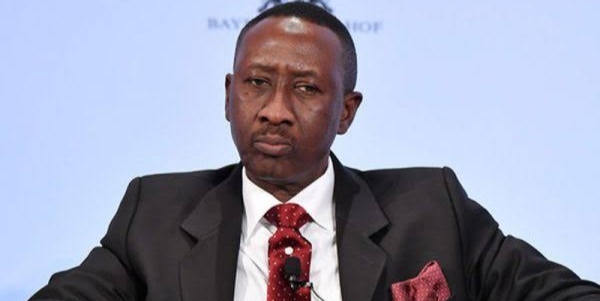Office of the National Security Adviser (ONSA), on Tuesday, engaged the stakeholders in the Telecommunication sector to discuss the implementation of Nigeria’s National Cybersecurity Policy and Strategy (NCPS) 2021.
The News Agency of Nigeria (NAN) reports that ONSA has commenced the series of sensitisation for seven sectors that are critical to digital transformation in Nigeria.
The National Security Adviser (NSA), retired Maj.-Gen. Babagana Monguno, said that cyberspace was fast evolving creating technologies, dismantling barriers to commerce and allowing seamless communications across borders.
Monguno, who was represented by the Director, Policy and Strategy, ONSA, Amb. Aminu Lawal, said that the development of Nigeria’s cyberspace was accompanied by significant and inherent threats and challenges.
He added that the increased independence on the cyberspace came with the risk that threatened national security, cyber space operation as well as the negative impacts on critical infrastructure of nation state whose operations were reliance on the cyberspace.
According to him, the telecommunication sector is more scared of the challenges the cyber space presents due to the growing number of interconnected systems as a result of the geometric rise of Internet users in Nigeria.
“Furthermore, the telecom companies have long been a high value target for cybercriminals and nation state actors because of its nature, critical service provided, the type of communications infrastructure used for transmission storage and potential of large amounts of private and sensitive data.
“Therefore, nation state actors are increasingly targeting telecommunication providers their structure and their operations in order to establish combat surveillance over infiltrated networks to allow them operate undetected over long time.
“One of the notable attacks on telecom infrastructure is the Chinese state linked hackers in September who targeted Afghan telecom provider and stole gigabytes of data from their corporate mail server over the past year.
“Another incident involving Iran hackers when they obtained 15TB of data from 8000 organizations working with Israel based company voice center and offered the data online for 1.5 million dollars.
“More recently, a Bucharest based organisation reported that Nigeria, South Africa, and Kenya collectively recorded over two million phishing attacks in the first half of 2021.
“Among these attacks, over 393 cases were attributed to Nigeria representing 13 per cent decline compared to the same in 2020,” he said.
Monguno said that the above incidents was a clarion call for more protective measures to protect the exponentially growing internet users in Nigeria.
He commended the effort of the Minister of Communication and Digital Economy and all relevant stakeholders through the Nigerian Communication Commission (NCC) for the various innovations introduced in the sector.
He said that ONSA had taken proactive measures to address some of the issues surrounding the telecom sector especially the deliberate destruction of telecoms infrastructure across the country.
According to him, the workshop provides opportunity for stakeholders to build the necessary relationships for better collaboration to a cyber security development in the country.
The Director, Communication, ONSA, Brig -Gen. Samad Akisode, said that cyberspace had become a fundamental aspect of humanity globally, adding that economies were constantly striving to exploit the benefits of the digital age.
Akesode said the constantly evolving cyberspace technology that enabled innovation and benefits had also made the users vulnerable to challenges, risks and malicious activities that must be tamed.
According to him, the increased dependence on the cyberspace comes with risks that have significant national security implications which also affects the telecoms sector as part of the ecosystem that drives digital transformation towards national development.
He urged the participants to make useful inputs that would support the implementation of the NCPS 2021 towards enhancing national development.
NAN reports that the workshop is being held across seven sectors of the economy which include Telecommunications, Defence and Security, Education, Finance and capital market, energy, professional organisations, the private sector and Judiciary.








